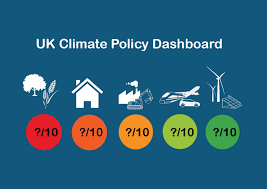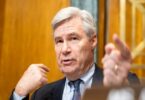LONDON (AFP): UK Prime Minister Rishi Sunak on Wednesday announced plans to ease certain climate policies aimed at reaching net zero carbon emissions by 2050.
The move sparked opposition from politicians — many in his own party — environmentalists and industry.
– Petrol cars sale ban –
Previous prime minister Boris Johnson set a 2030 deadline for the ban on selling petrol and diesel cars, but Sunak announced Wednesday that the date was being pushed back.
“You’ll still be able to buy petrol and diesel cars and vans until 2035, even after that you’ll still be able to buy and sell them second-hand,” he said.
“We’re aligning our approach with countries like Germany, France, Spain, Italy, Australia, Canada, Sweden, and US states such as California, New York and Massachusetts,” he added.
– Replacing gas boilers –
The government had a target of installing 600,000 heat pumps — which draw warmth from outside air and run on electricity — per year by 2028, as part of a wider plan to phase out the installation of new gas boilers by 2035.
But Sunak said Wednesday that “we will give people far more time to make the necessary transition” and that the government “will never force anyone to rip out their existing boiler and replace it with a heat pump”.
Instead, households will only have to make the switch when replacing their boiler, and not until 2035.
Households that cannot afford the estimated £10,000 ($12,416, 11,566 euros) cost will “never have to switch at all”, he added.
Cash grants for households to replace their boilers will also be increased by 50 percent to £7,500.
– Household efficiency –
Landlords wanting to rent out properties were only going to be allowed to do so after 2028 if they hit certain energy efficiency ratings, but Sunak said those plans would now be “scrapped”.
“While we will continue to subsidise energy efficiency, we will never force any household to do it,” he said.
– Green incentives –
In a bid to reach the 2050 net zero target, Sunak announced a £150 million fellowship to help scientists and engineers develop green technologies.
He also announced reforms to the planning process for new energy and grid infrastructure projects.







